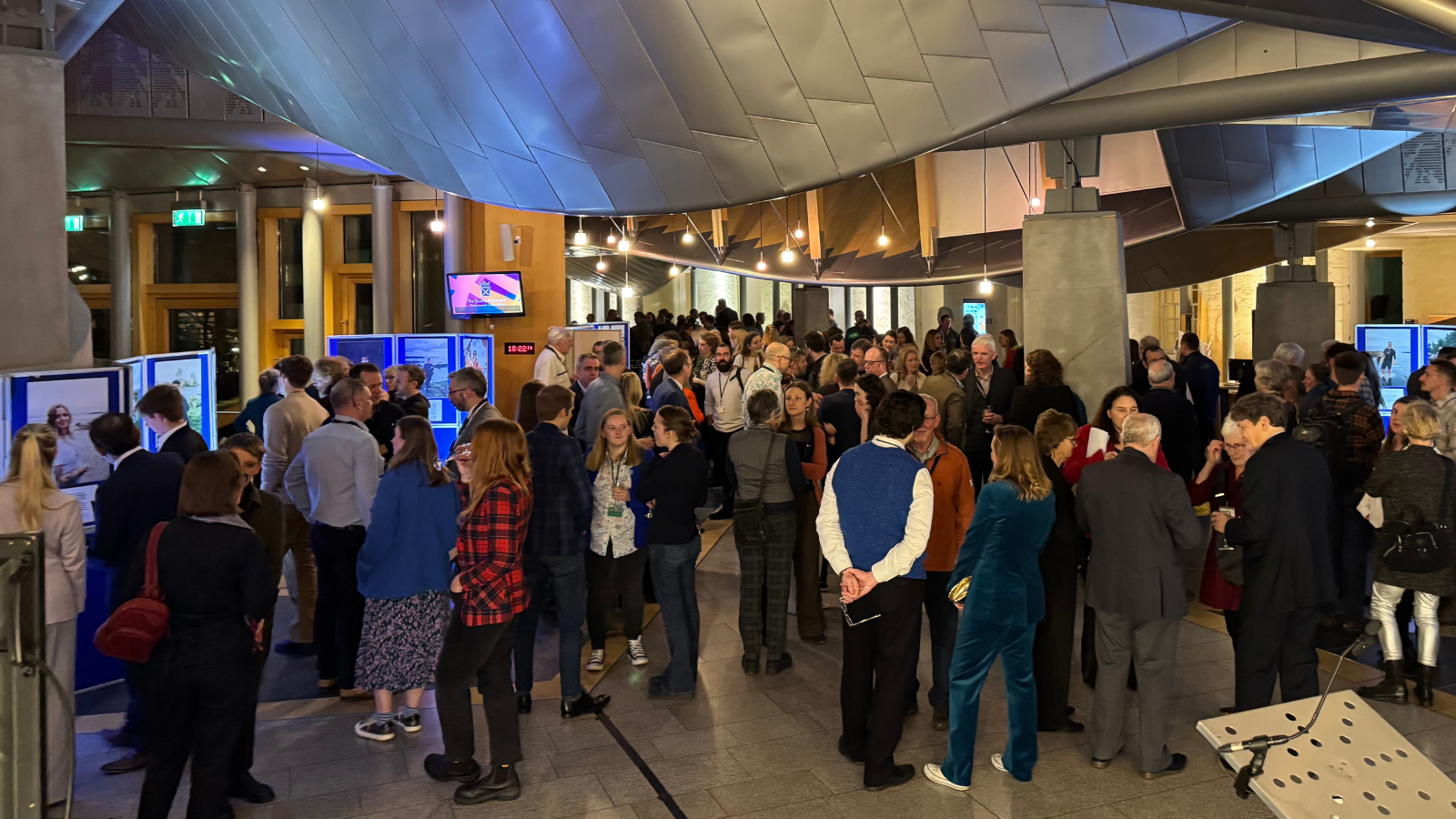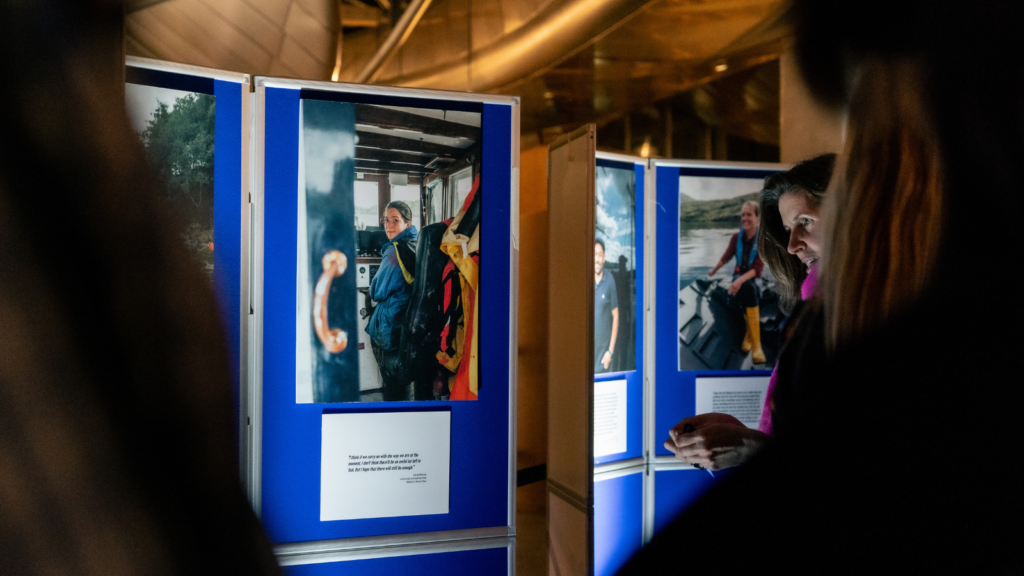The following article was published in Fishing News on 11 Feb 2025
On 28 January, The Our Seas Coalition hosted a reception in the Scottish Parliament to showcase its Coastal Testimonies exhibition, with 17 MSPs and 160 people from all over Scotland in attendance. Bringing together photographs and written testimonies from over 50 people, including commercial fishers, skippers, sea anglers, scientists, local businesses, community representatives, and recreational interests from all eleven Scottish marine regions. The aim of the ‘Coastal Testimonies’ project is to promote a better understanding of inshore environmental and fisheries issues and inspire greater dialogue and action within communities.

The Our Seas coalition is an alliance of 140+ coastal businesses, community groups, fishermen’s associations & environmental organisations calling for a transformation in the way that our coastal seas are used and managed- to secure social, economic and environmental recovery.
Over the past two years, the coalition has gathered testimonies and photographic portraits from a diverse range of stakeholders who shared their first-hand experiences of Scotland’s inshore seas. These ‘Coastal Testimonies’ provide the foundation for an exhibition which has toured in Stornoway, Eyemouth, Glasgow, Lochaline, Inverness, and Ullapool – culminating in last week’s reception in Scottish parliament.



Coastal Testimonies photographed by Katerina Barvirova
Commercial fishermen stood alongside community representatives, marine scientists and environmental groups to urge the Scottish Government to act faster to safeguard sustainable inshore fisheries. The evening included speeches from MSPs Rhoda Grant, who hosted the event, and Alasdair Allan, the Acting Minister for Climate Action, as well as Alasdair Hughson, scallop diver and Our Seas coalition member, and Cal Major, one of the testimony-givers for the exhibition.
Rhoda Grant, MSP for the Highlands and Islands, said:
“One of the main themes to highlight during this event is the need for all groups and individuals to be involved in decision making around our seas. When we look at policy that affects coastal communities, we need to make sure that those who live and work there are involved in the decision-making.”
Alasdair Hughston said:
“When changes are made to fisheries management there are inevitably winners and losers in the short-term. If you are on the right side of that, then it can be very positive, if you happen to be on the wrong side of these changes it can be devastating to businesses which have taken generations to build. When the three mile limit was removed in 1984 there were no provisions for the many small scale creel and dive boats affected. We must learn from that. We must accept that there will need to be mitigations put in place to either allow certain activities to continue in appropriate areas or that people deserve some form of meaningful support if we are to remove a right to access that has existed for a long time. But we must act – and with urgency.“

The Our Seas coalition are inviting others to add their voice to this growing narrative by sharing their own experiences and insights about Scotland’s coastal waters. To submit your own testimony, visit www.ourseas.scot/coastal-testimonies/
Leave a Reply